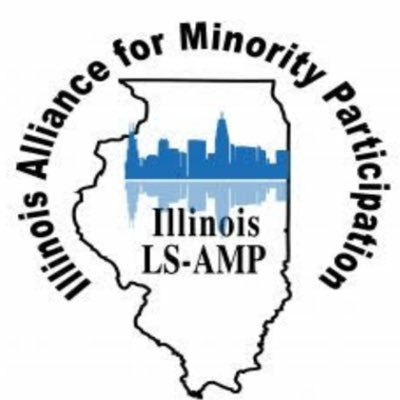|
Mentor: Kimberly Hansen
Description: The Field Museum’s John G. Searle Herbarium contains almost three million plant
specimens collected from all over the world. Many of these specimens represent undescribed
species. Unfortunately, these new additions to the scientific record will remain unrecognized
until a specialist is able to take a closer look at the collections. This internship
offers opportunities to gain experience curating natural history collections and contribute
to ongoing research projects focused on describing unrecognized species of flowering
plants. This internship will focus on “taking a closer look” at The Field Museum’s
Gesneriaceae (African violet family) herbarium collections from Latin America. The
student will work with specialists to update and digitize the herbarium collections
then gather morphological and geographic data from these specimens. The student will
learn how to analyze their data and test hypotheses related to species delimitation.
|
|
Mentor: Michael Donovan
Description: The Field Museum is home to one of the largest paleobotany collections in North America
and includes fossils from throughout the history of plants. Proper curation of these
plant fossils is essential for their long term preservation, which will enable continued
access of the collection for research and education into the future. Digitization
of the collection, including databasing and photographing specimens, is necessary
to increase the accessibility of the collection for people around the world. The intern
will gain experience in curating and digitizing fossils, including identifying, databasing,
and photographing specimens.
|
|
Mentors: Susan Mochel and Caleb McMahan
Description: Natural history collections house specimens that are critically important for documenting
and studying the world's biodiversity. The Field Museum of Natural History has over
40 million specimens and objects in its collections, some two million of which are
fishes. Curation of these collections is a diverse job that ranges from handling specimens
to database management. The student will be involved in several different aspects
to curating natural history collections of fishes, and offer experience in computer
and database skills, communication with researchers, identification of fishes, and
laboratory skills.
|
|
Mentor: Paul Mayer
Description: Interns will work on digitizing the Field Museum's Fossil Invertebrate collection
of Devonian marine invertebrate fossils. This will include data entry of specimen
label data into our EMu database, photographing fossils and labels, and some Facebook
posts about the fossils. This project is partially funded by an IMLS grant to digitize
the Devonian fossils in the Field Museum's Fossil Invertebrate collections. Interns
will work directly with the fossils.The Field Museum will provide EMu and photography
training. Experience with paleontology courses or databases is a plus.
|
|
Mentor: Matt von Konrat
Description: This internship would be focusing on early land plants (mosses, liverworts and hornworts),
which are used as environmental indicators of climate change and are evolutionary
very significant. These early land plants have an incredible evolutionary history
spanning 420 million years ago. Today these ecologically significant groups of plants
form a dominant and conspicuous part of the ecosystem in many regions all around the
world. Many species also have interesting biological properties. For example, chemical
compounds from some species show cytotoxicity against certain cancer cell lines.
The mentee will join a diverse team including senior scientists, researchers, technicians,
undergraduates and high school students helping unlock hidden biodiversity from these
microscopic plants, especially the liverwort genus Frullania. There are over 2000
published names, yet there remain many undescribed species. Uncovering hidden, or
cryptic biodiversity remains a serious challenge. This project is designed to not
only resolve systematic questions, but also to help address a number of challenges
currently facing systematics, including identifying apparently cryptic or nearly cryptic
species and the synthesis of exponentially growing data sets. This project will potentially
test a combination of molecules, morphology and machine learning to test taxonomic
and evolutionary hypotheses regarding morphologically cryptic species.
Skills that will be acquired through this internship: Development of computer-aided
tools, coding, digital microscopy, DNA tools, fieldwork, herbarium skills, morphometrics,
plant systematics.
|
|
Mentors: Sean Keogh and Marty Pryzdia
Description: Freshwater mussels are temporary parasites who rely on their fish hosts for dispersal
into novel habitats. Which host and the number of hosts a particular freshwater mussel
species can infect, varies dramatically across different mussel species. This variation
in host use fundamentally alters freshwater mussel natural history. Yet these causal
relationships have been poorly explored. In this project, interns will use Field Museum
collections and existing datasets to test a number of hypotheses regarding the role
of host use in freshwater mussel ecology and evolution. Interns will be involved in
all phases of the scientific method and learn skills in R coding, morphometrics, data
curation, technical analysis, scientific writing, and potentially assist with field
collection of fish hosts and/or mussels.
|
|
Mentor: Kimberly Hansen
Description: The Field Museum’s John G. Searle Herbarium contains almost three million plant specimens.
Approximately 60% of the flowering plant specimens were collected in Latin America,
with a concentration in tropical areas well known to be biodiversity hotspots. Documenting
and understanding patterns of global diversity has become more important than ever
as diversity continues to decline worldwide. In order to make the collections more
accessible to researchers who document biodiversity, we are focusing on digitizing
neotropical herbarium specimens. The internship will focus on preparing specimens
to be imaged and transcribed. The intern will learn about curatorial processes and
best practices for natural history specimens in addition to plant diversity, geography,
and history.
|



 All Rights Reserved
All Rights Reserved